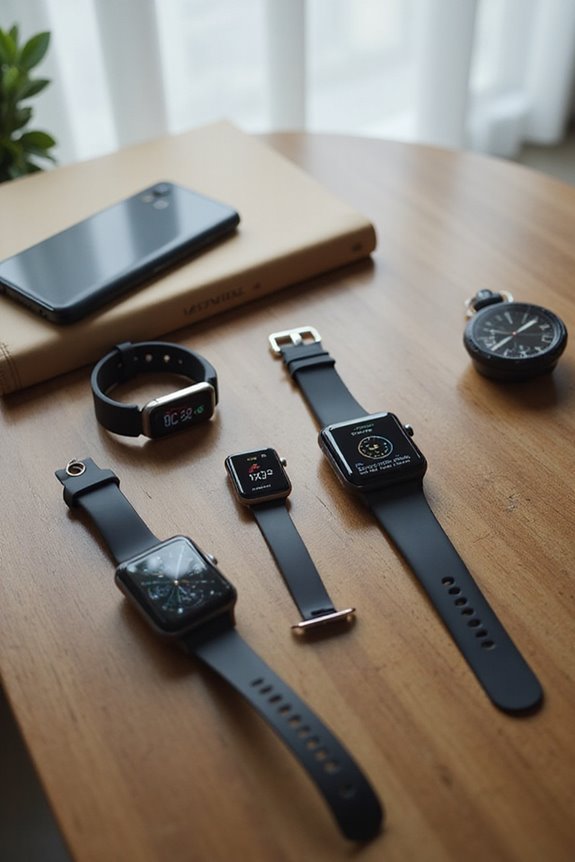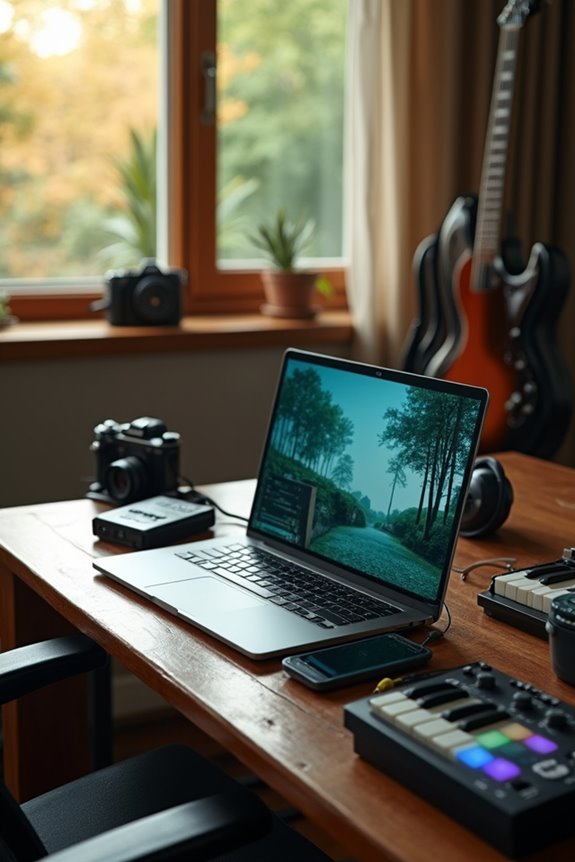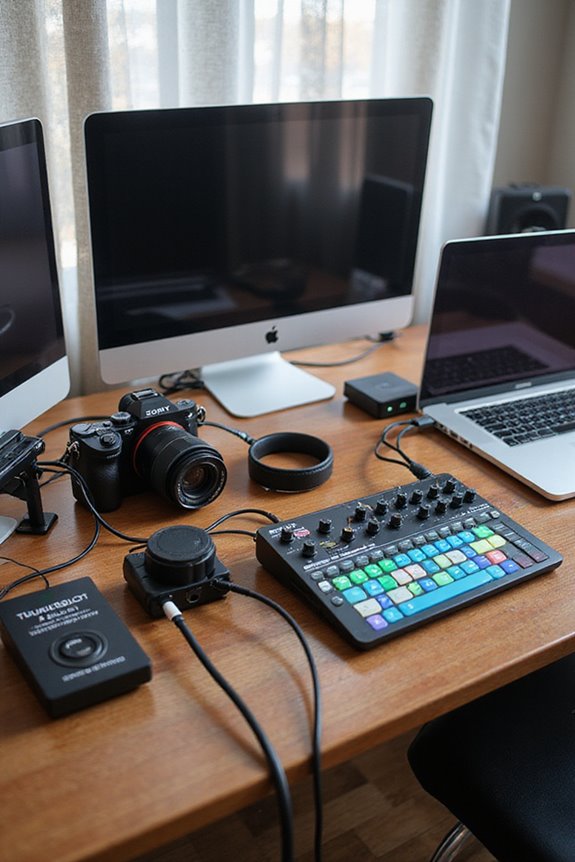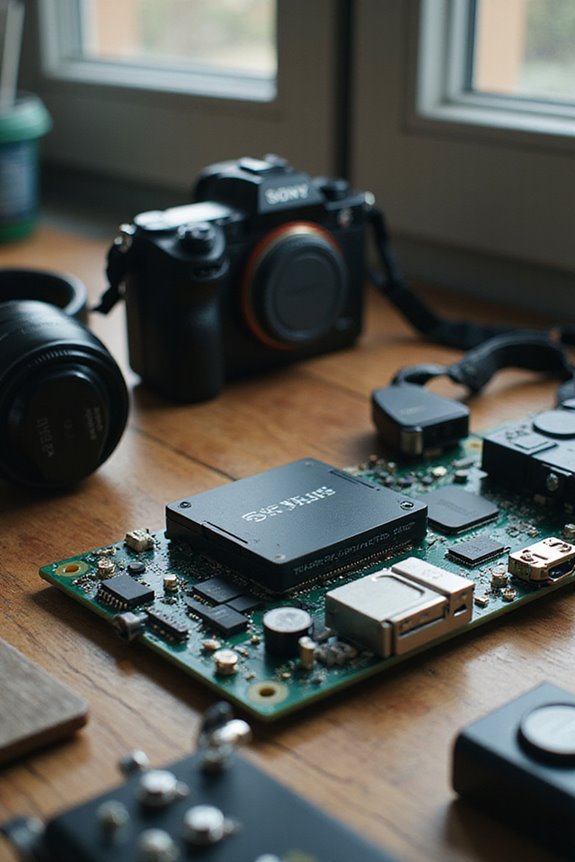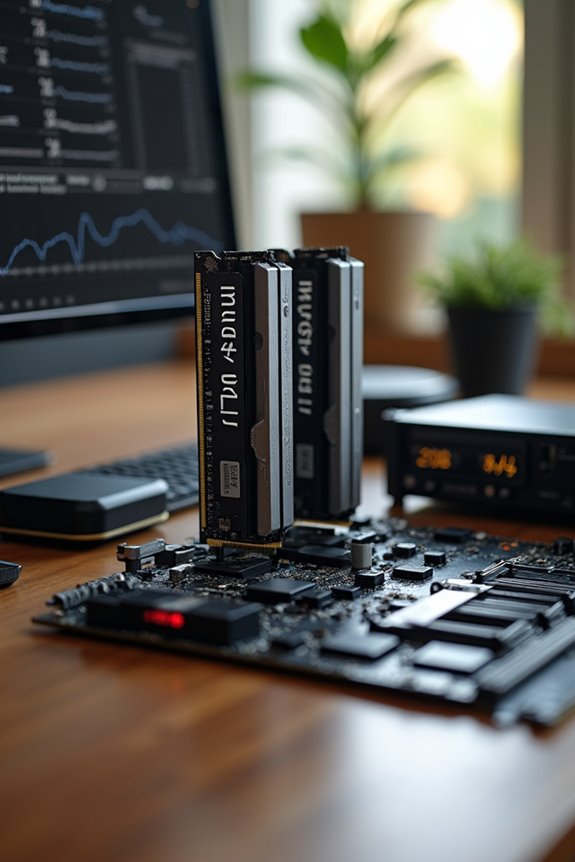Choosing an accurate fitness tracker is essential for hitting our fitness goals. We should consider metrics like heart rate, step count, and calorie estimation. For instance, the Apple Watch shines in heart rate monitoring with an accuracy of 86.31%, while Garmin excels in step counting at around 82.58%. Let’s also remember factors like device fit and environmental conditions, which can impact performance. As we weigh these options, we’ll uncover more insights to help us make the best choice.
Key Takeaways
- Prioritize brands known for reliability, such as Apple, Garmin, and Fitbit, to ensure accurate tracking results.
- Consider specific accuracy metrics; Apple Watch excels in heart rate monitoring, while Garmin is superior in step counting.
- Assess how the device fits; a snug fit enhances accuracy in step counting and heart rate readings.
- Be aware of environmental factors, like temperature and humidity, as they can impact sensor performance significantly.
- Understand the algorithms used by different brands, as they greatly influence the precision of calorie burn and activity tracking.
Understanding Accuracy Metrics
When we think about choosing a fitness tracker, understanding the accuracy metrics is essential for making an informed decision. First, we should recognize the accuracy challenges that different metrics present. For instance, heart rate monitoring averages about 76.35% accuracy, making it fairly reliable. In contrast, step counting offers moderate accuracy at approximately 68.75%, which can fluctuate based on our activities. Unfortunately, energy expenditure estimates often fall below 60%, so we must approach those figures with caution. This reliability variance emphasizes the importance of selecting a device that aligns with our fitness goals. By thoroughly evaluating these tracking reliability factors, we can make smarter choices and guarantee our fitness journey is grounded in trustworthy data.
Device-Specific Performance Insights
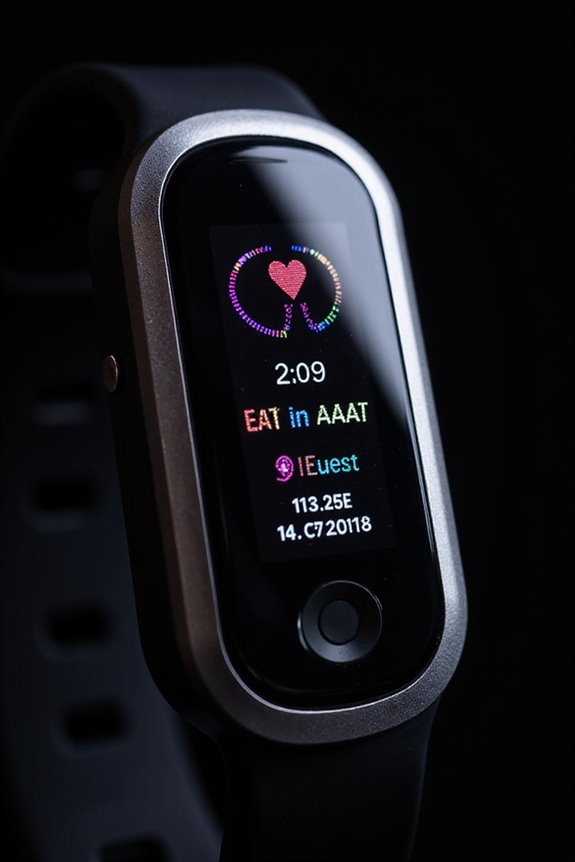
As we explore device-specific performance insights, it’s important to recognize that not all fitness trackers are created equal. When we look at device comparisons, brands like Fitbit, Apple, and Garmin consistently deliver reliable step data, with errors typically within 3-5% during walking. However, factors like device fit can impact accuracy.
In terms of calorie burn, variability can be substantial—some devices may over or under-report by up to 20%. Heart rate monitoring is generally reliable, especially during moderate exercise, but can falter during high-intensity workouts.
Ultimately, brand reliability is vital in selecting a tracker that meets our needs, as each brand employs different algorithms, affecting the precision of various metrics.
Factors Affecting Accuracy
Understanding the various factors that influence the accuracy of fitness trackers is essential for making informed choices. Sensor reliability plays a vital role; for instance, optical heart rate sensors are generally accurate for heart rate but less so for energy expenditure. User consistency is equally important—how tightly we wear the device and our skin tone can impact readings. Environmental conditions, like temperature and humidity, can also affect sensor performance. Furthermore, the algorithms each brand uses can vary greatly, shaping how our data is interpreted. By being aware of these factors, we can better assess which fitness tracker will meet our needs and provide reliable health insights.
Key Functional Tracking Types
While fitness trackers come in various shapes and sizes, their effectiveness largely hinges on their core tracking functionalities. First, step detection is important; it typically uses accelerometers for accurate counts, often within a 5-10% margin of error. Heart monitoring enhances workout insights through continuous tracking of heart rate and intensity levels. Sleep analysis is significant for understanding our rest patterns, with devices detecting sleep stages and quality. Calorie estimation combines heart rate data and activity types, offering personalized insights into our daily burn. Finally, activity logging captures diverse exercises, from yoga to cycling. Additional sensors, like SpO2 and ECG, further enrich our health data, making these functionalities essential when choosing a tracker.
Use Case Recommendations Based on Accuracy
When we choose a fitness tracker, it’s essential to align our needs with the device’s accuracy in various use cases. For heart rate monitoring, devices like the Apple Watch excel with an impressive accuracy of 86.31%. This makes it ideal for those focusing on heart rate-guided training or rehabilitation. On the other hand, if step counting is our priority, Garmin stands out with around 82.58% accuracy, which is notably better than many competitors. However, we should be cautious of potential overcounting with devices like Fitbit, which can mislead our daily targets. By understanding these distinctions, we can select a tracker that truly meets our fitness goals while ensuring we interpret the data wisely.
Factors to Consider When Choosing a Fitness Tracker
Choosing the right fitness tracker goes beyond just accuracy in heart rate or step counting; we need to take into account several factors that can greatly influence our experience and results. First, let’s consider user preferences—some of us may prioritize heart rate accuracy, while others might seek superior step counting. Brand loyalty also plays a role; we often feel comfortable with familiar names like Fitbit or Garmin, but we should remember that models within these brands can vary considerably in accuracy. For instance, the Fitbit Charge 5 shows low error margins in step counts, while some Garmin models may overcount. Ultimately, we should look at specific model performance rather than relying solely on brand reputation to find the right fit for our needs.
Conclusion on Fitness Tracker Selection
Ultimately, selecting the right fitness tracker hinges on understanding our unique needs and lifestyle goals. We must first identify our user preferences and feature priorities, whether it’s GPS for outdoor activities or heart rate monitoring for fitness tracking. Budget plays an essential role; while basic models offer fundamental features, premium devices come with advanced sensors and longer battery life, suitable for enthusiasts. Compatibility with our smartphones is critical to guarantee seamless syncing and usability. Additionally, we shouldn’t overlook the user experience—comfort and aesthetics matter too. By focusing on these key elements, we can choose a fitness tracker that enhances our health journey, motivating us toward our goals without becoming a source of stress or obsession.
Frequently Asked Questions
Can Fitness Trackers Monitor Sleep Quality Accurately?
We’ve found that fitness trackers can monitor sleep quality, but their accuracy varies widely, especially when comparing sleep stages. Misreporting is common, so we should remain cautious about relying solely on their data for precise assessments.
How Do I Reset My Fitness Tracker?
Imagine a fresh start—like a sunrise breaking through the clouds. To reset our fitness tracker, we can explore reset methods, restoring it to factory settings for a clean slate and improved performance. Let’s rejuvenate together!
Are Fitness Trackers Waterproof or Water-Resistant?
When we consider fitness trackers, it’s essential to understand waterproof ratings. Many models offer water-resistant features for activity tracking, but only some are truly waterproof, suitable for swimming or intense water activities.
Can I Use a Fitness Tracker Without a Smartphone?
Can we really enjoy fitness tracker features without a smartphone? Absolutely! Many models function independently, offering syncing options later, letting us track our progress without relying on our phones for every feature.
How Long Do Fitness Trackers Typically Last on a Single Charge?
When considering battery life, we notice fitness trackers typically last between 6 to 13 days on a single charge. However, charging frequency varies based on features like GPS, which can greatly shorten battery endurance.

